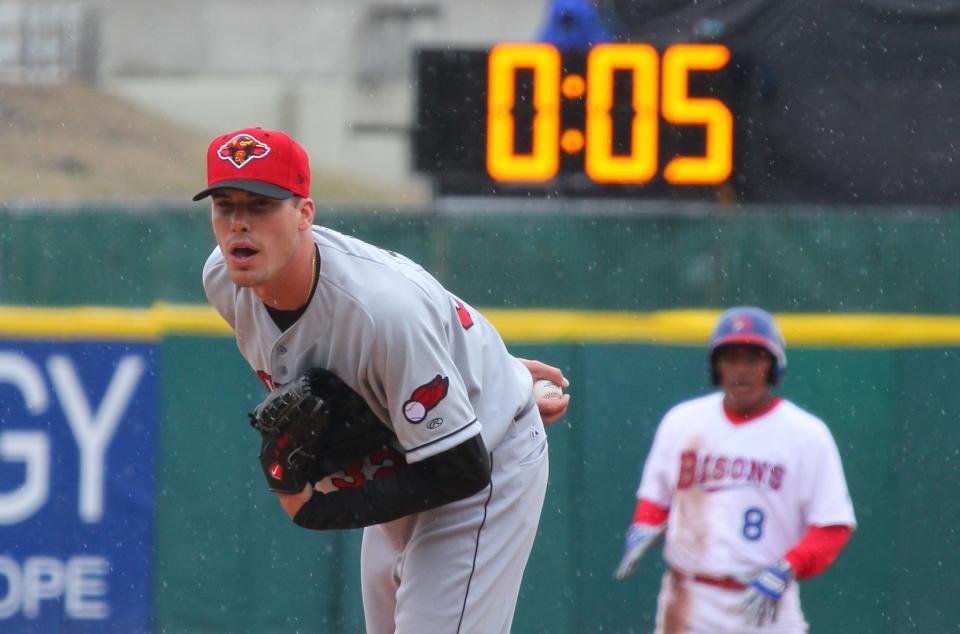Rob Manfred: MLB will use pitch clock during spring training
Like it or not, a pitch clock is coming to an MLB spring training game near you.
MLB commissioner Rob Manfred told reporters Sunday that the league would be making use of a pitch clock during spring training, though it will pretty much only be a cosmetic change as it won’t carry penalties.
Manfred says there won’t be any penalties for pitch clock violations in spring training. Just about giving everyone a chance to get used to it.
— Mark Zuckerman (@MarkZuckerman) February 17, 2019

This change comes as MLB officials reportedly push to use a pitch clock during the 2019 season in negotiations with the MLB Players Association, though it doesn’t mean an agreement has been reached either way.
Is a pitch clock coming to MLB games?
Manfred reportedly emphasized that he is not committing to using a pitch clock in the regular season, despite possessing the ability to do so unilaterally.
Manfred said he is not committing to a pitch clock in the regular season at this point, but he can unilaterally implement it. He said he wants to come to an agreement with the players. Using it in spring training does not necessarily mean MLB will do so in the regular season.
— Jeff Passan (@JeffPassan) February 17, 2019
The reason why Manfred might be hesitant to make that move is it would likely further antagonize the league’s players at a time when a work stoppage is already feared during the upcoming collective bargaining agreement negotiation.
[Batter up: Join or create a 2019 Yahoo Fantasy Baseball league for free today]
A pitch clock has already been in use in the minor leagues for years, but adding it to the majors would be a massive change for both players and fans.
How would an MLB pitch clock work?
Per a report from Sports Illustrated’s Tom Verducci, MLB officials have proposed an 18-second time limit between pitches with the bases empty and a 20-second limit with runners on base, which the MLBPA rejected.
The current rules for Double-A and Triple-A games feature a 15-second clock with the bases empty and 20 seconds with runners on base. Allowing the clock to run out leads to an automatic ball in the count, though an automatic strike is added if the batter is not in the batter’s box with at least seven seconds left in the clock.
MLB officials have reportedly proposed a soft rollout in the event the clock is added, in which a warning will be issued for violations during the first month or two of the season.
There is little doubt these changes wouldn’t lead to a significant decrease in game length. In the first season pitch clocks were used at Double-A and Triple-A games, the average time of game fell by 12 minutes between the four leagues that make up those levels.
Applying that change to the majors, where some veteran starters average as long as 25 seconds between pitches and some relievers surpass 30 seconds, could lead to an even more drastic effect. Pace of play has arguably been Manfred’s signature issue during his tenure as MLB commissioner, so you can imagine traditionalists won’t be able to hold off such a change for long.
More from Yahoo Sports:
• Thunder guard Diallo skies over Shaq to win NBA Slam Dunk Contest
• Forde: Kentucky exposes Vols as overrated, no matter what Calipari thinks
• Real Madrid suffers shock home defeat as captain Ramos is sent off
• Steelers’ Brown: Players fear losing ‘meal ticket’ if they challenge Big Ben


